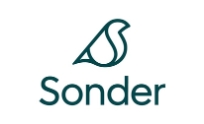
Etihad reports 25.4 per cent Q1 growth in revenue passenger kilometres
|
 |
Etihad reports 25.4 per cent Q1 growth in revenue passenger kilometres
|
Category: Worldwide - Industry economy
- Figures / Studies
This is a press release selected by our editorial committee and published online for free on 2010-04-15
Etihad Airways, the national airline of the United Arab Emirates, today reported 25.4 per cent growth in revenue passenger kilometres (RPKs) in the first quarter of 2010, far out-pacing the industry average and running ahead of the airline’s available seat kilometres (ASKs) growth of 22 per cent.
The improvement, against the first quarter of 2009, was matched by an increase in seat factors, from 73 per cent to 75 per cent.
Passenger numbers increased by 11 per cent and, despite the continuing economic downturn affecting many of Etihad’s international markets, premium traffic also increased by five per cent.
James Hogan, Etihad Airways Chief Executive Officer, said: “These are encouraging figures. Despite operating in the worst air transport recession in history, Etihad has continued its growth trajectory.
“Our investment in our product and in our brand has helped us to attract higher numbers of passengers in both economy and premium cabins.”
The airline said that its long haul operations made important contributions to its performance in the first quarter, including:
· 87 per cent seat factors in economy on the new Chicago route;
· Asia-Pacific and Australian routes all operating at seat factors of more than 80 per cent in the economy cabin; and
· European, American and Australian routes all operating at more than two thirds full in the business cabin during the period.
Etihad’s first quarter figures build on its 2009 performance, which saw RPKs increase by 15 per cent and total passenger numbers rise from 6.0 million to 6.3 million. Those figures were boosted by eight new route launches through the year, to Melbourne, Astana, Istanbul, Athens, Larnaca, Chicago, Cape Town and Hyderabad.
James Hogan said: “2009 was a very difficult year for the global air travel industry. The worst global recession in living memory, coupled with the H1N1 pandemic, led to a huge drop in demand for air travel.
“Airlines around the world have seen passenger numbers drop and yields have fallen significantly.
“Despite facing these same challenges, Etihad managed to increase passenger numbers and saw a large growth in our RPK figures. This was helped by the continued expansion of our route network, by the growth of our fleet by 10 aircraft and by the aggressive sales and marketing of our services.
“Most importantly, we saw seat factor and yields recover over the latter part of the year, particularly in the premium cabins, where we have invested in creating a world-beating product.”
Seat factor through 2009 was 74 per cent, holding steady on the 2008 level.
Mr Hogan also highlighted the success of the airline’s cost reduction plan that commenced in 2007.
He said: “We reduced our costs per available seat kilometre (CASK) by more than 14 per cent during the year, a sizeable reduction.
“We are seeing the results of the implementation of our business strategy over the last three years coming to fruition. An outstanding product, available across a robust and attractive network, delivered by a lean and efficient business – these elements are the recipe for our future success.
“By continuing to align Etihad’s growth agenda with Abu Dhabi’s 2030 plan, we believe we have the right strategy to meet those challenges.
“Our 2010 performance is already showing positive results, with all major indicators showing strong improvements on January and February of last year.
“The market environment remains very challenging and it will require clear focus if we are to continue on our growth path in 2010.”
|
|






